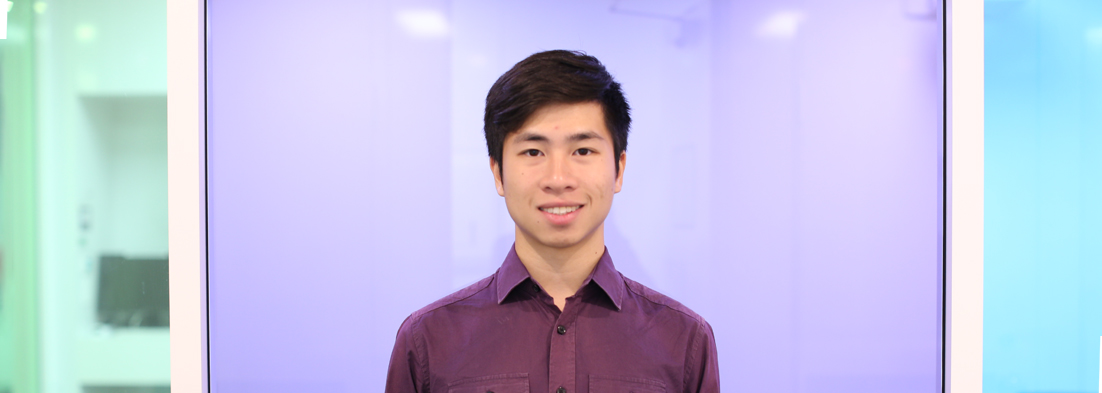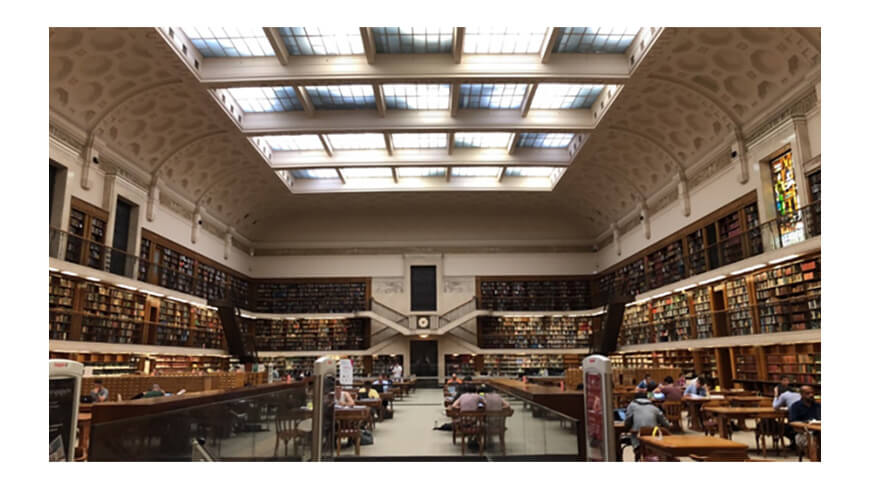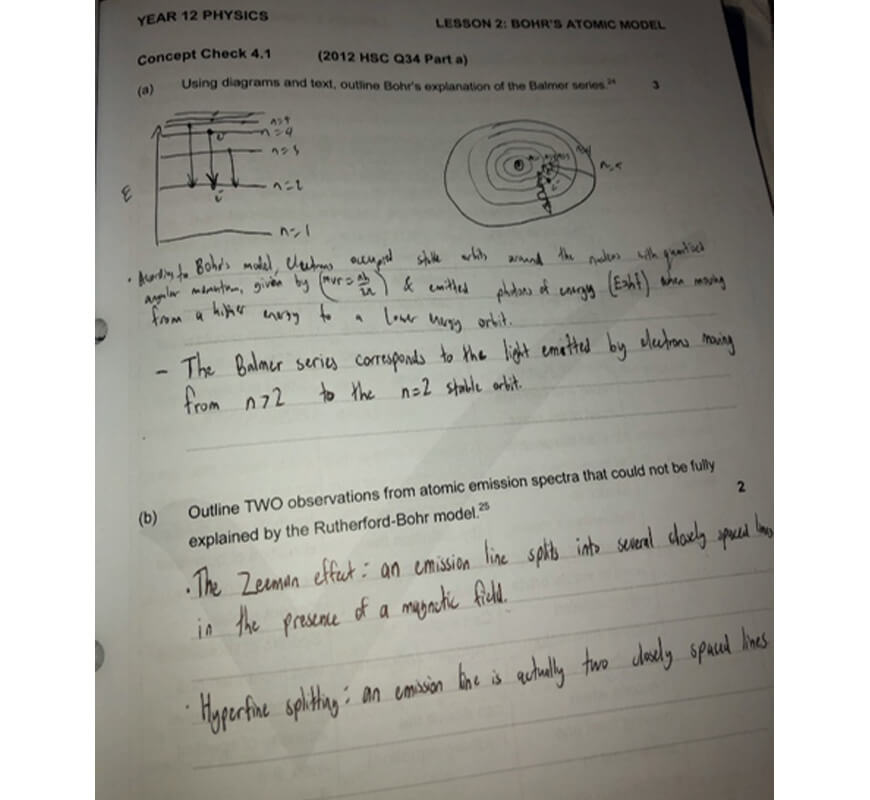Welcome to Matrix Education
To ensure we are showing you the most relevant content, please select your location below.
Select a year to see courses
Learn online or on-campus during the term or school holidays
Learn online or on-campus during the term or school holidays
Learn online or on-campus during the term or school holidays
Learn online or on-campus during the term or school holidays
Learn online or on-campus during the term or school holidays
Learn online or on-campus during the term or school holidays
Learn online or on-campus during the term or school holidays
Get HSC Trial exam ready in just a week
Get HSC exam ready in just a week
Select a year to see available courses
Science guides to help you get ahead
Science guides to help you get ahead
In this article, Matrix Alumnus and Christian Brother’s High School Lewisham graduate Kieren Nguyen shares how to use libraries to beat distraction and ace your HSC.

Join 75,893 students who already have a head start.
"*" indicates required fields

Join 8000+ students each term who already have a head start on their school academic journey.
Kieren Nguyen
Christian Brother’s High School Lewisham
Bachelor of Engineering (Honours), Master of Biomedical Engineering
93
I’d love to become a biomedical engineer and not just study it!
For me, this career offer an opportunity to continue helping people with new and innovative medical devices. On top of that, I love engineering and the potential the field has to create new and exciting things that will one day shape the technology of the future.
…of my passion for Maths and Science.
I’ve always performed well in these subjects, further driving me to pursue them as subjects during my HSC. If you notice my subjects, they’re almost all Maths and Science! I made sure in Year 11 to choose the subjects that I would enjoy (except compulsory English!) so that I would always be motivated to study and learn more about them.
…it’s my least favourite subject, and it’s often quite overwhelming for me to write a whole essay in a single sitting.
A tip I was given by my English teacher that I found useful when writing essays was to write one or two paragraphs at a time and break down the amount of work you need to do. I think of it like a Maths or Physics problem where you’ll often require multiple steps to get to the solution.
I struggled with playing games on my phone, social media scrolling and Wikipedia holes (when you keep finding new links to explore on Wikipedia and other sites!).
So how did I beat it? I changed my surrounds to get rid of the distraction! I hit the library.
Libraries are your secret weapon for study.
Why? Libraries are also quiet places, free from distraction, and are often filled with textbooks and studying material set aside for HSC students.
First things first, you need to choose your space.
When choosing a library, I would go to libraries with good study rooms, either a private room, or a large study hall.
The State Library, for example, has numerous private study rooms which are useful for separate group tasks, but also for individual study, if you feel distracted by others.

How conveniently I could travel to and from a library is another factor I took into account when choosing a library to study at. The State Library, located near Martin Place Train Station, was convenient to travel from my school, as it didn’t take too long for a train to reach the city.
However, other libraries can be closer to home, and so could be more convenient for you to study at. I studied at Campsie Library as well, since it was on the same train line as my home and had private study rooms. This could be the same for most local libraries, but you ultimately can choose for yourself which library suits you best.
Go to a library to study.
It might seem like too much effort at first, but I found that keeping up a routine of going to the library to study helped keep me focused, and the pressure of being in public makes you feel like you need to study. (This makes you feel embarrassed when you’re seen playing games instead of studying!).
Another tip is to incorporate study into your daily routine early on. I started studying at libraries and made study groups as early as possible (in Year 11), which taught me to have better study habits and gave me more motivation to study in Year 12. But you don’t have to go to a library to make a routine, you can just as easily have a routine around any activity, such as tutoring (at Matrix Education, obviously!), piano practice, essay writing or going to the gym for a workout sesh.
Sometimes, at a library, you can form study groups, but be careful with who you study with.
Try to choose people who motivate you to study and share the same subjects, rather than people who could end up distracting you with small talk or questions.
However, other times, people with different subjects may have less to distract you with and can instead provide motivation for you to study through their own examples of hard work. It is up to you to choose the people who you can best study with based on what you want to achieve.
If you’re working in a group on the same subject together, organise a system before you study.
Clarify to each other your skills in each topic, making it clear who is best able to answer any questions you might need to ask. This also helps you to become more confident when it comes to asking questions, as you can first ask your friends, and if you still need help, the question can be posed to a teacher instead.
You can work together by teaching each other in the topics you’re not good at and can then quiz each other or compete with mock exams to see whether you’ve improved. This will help to motivate your entire group, as a little friendly competition will keep you from becoming too relaxed and prone to distraction.
Make a list of smaller tasks (break up bigger problems).
Do this, especially before you start studying, so you have a clear goal of what you want to achieve by the day’s end.
This helps you to focus on each individual task and makes it less likely for you to get distracted.
Often, a phone is the biggest distraction to study, as it holds games, social media and the internet all in one. Using time-limiting apps on my phone helped to stop me from being distracted by it all the time.
Apps that can restrict access to these will greatly reduce the amount of time you spend distracted from your study. iPhones have inbuilt options (called Screen Time in Settings) to restrict that access, that can also track the amount of time you spend on these apps.
Studying for hours on end is not an efficient way of study and can leave you mentally drained and exhausted.
This also tends to be boring, and boredom can lead to procrastination and distraction!
A break is a way for you to reward yourself for the work you’ve already done, motivating you when you have been studying for long hours. Breaks can be taken as part of a routine as well, such as my schedule of 5-minute breaks for every hour of study, but you can choose any break routine that suits you.
Breaks should give you an opportunity to stave off boredom for a bit longer.
Breaks can include simple things, such as:
Here are my essential study tips.
The most effective strategy that I found was making a list of each task I set for myself before I began to study. It helped me to focus on my tasks, but also gave me set times for breaks and meals. Going through the list and seeing how close you are to the end really helps to motivate you to keep grinding through your work. There was also a lot of satisfaction at reaching the end of a day and seeing a completed list of tasks.
I couldn’t do it all myself. At Matrix, I attended Physics classes during the terms of Year 11 and 12, this usually kept me ahead of my school classmates by at least a term.
Physics doesn't need to be confusing
Expert teachers, detailed feedback, one-to-one help! Learn from home with Matrix+ Online Courses.
However, as extra preparation during my holidays prior to trials, I also attended the Exam Preparation Course for Mathematics Extension 1 and Extension 2.
These courses gave me innumerable questions to work through and hours of notes that I had compiled.
These were essential to grind out even more study before my last internal exams of the HSC.
Using diagrams, flowcharts and mind-maps were really useful for studying, and they helped me to better engage with the information I was trying to understand. If you find yourself itching to use your creative talents whilst studying, avoid procrastination and instead draw diagrams relevant to your subject of study!
This was quite useful to me for biology and physics, helping me to model difficult concepts and recognise diagrams of them during exams!

If I could start the year again, I would have used lists during my study to help me break down my work right from the start of the year, as it was a study technique that really helped me, but I only started to use in Term 2.
I also really regret not asking my tutors and teachers as many questions as I could at every possible opportunity, as each time I did, I found their advice and knowledge invaluable. It saves a lot of time spent researching and studying, as they can break information down in a way that makes it so much easier to study from.
To future students of Year 12, the things you absolutely must do to avoid distractions and improve study is:
Written by Guest Author
We have regular contributions to our blog from our Tutor Team and high performing Matrix Students. Come back regularly for these guest posts to learn their study hacks and insights!© Matrix Education and www.matrix.edu.au, 2025. Unauthorised use and/or duplication of this material without express and written permission from this site’s author and/or owner is strictly prohibited. Excerpts and links may be used, provided that full and clear credit is given to Matrix Education and www.matrix.edu.au with appropriate and specific direction to the original content.